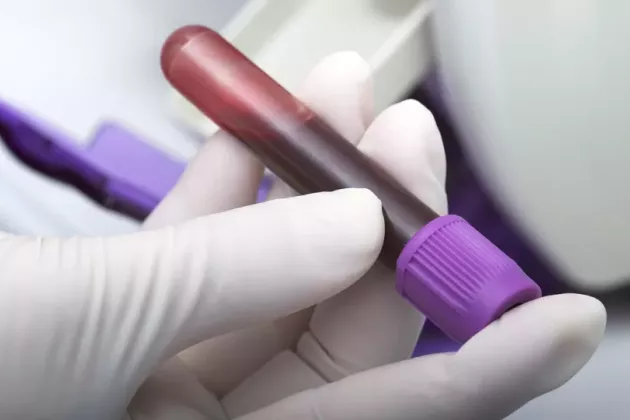Neuroscience

We conduct pioneering neuroscientific research. Through experimental, clinical and point-of-care research, our researchers are making discoveries that are being used to treat various brain disorders.
Alzheimer's and Parkinson's are examples of neurodegenerative disorders in which large groups of nerve cells in the brain are destroyed, leading to reduced motor and cognitive abilities. Current medications can alleviate some of the symptoms, but their effects decrease over time and the treatments available today do not halt the progression of the diseases.
There is a strong need for research that will contribute to new treatments that can delay or slow the progression of brain diseases. By addressing the problems with interdisciplinary approaches, researchers have a better chance of finding a cure.
Innovative research for better healthcare
Lund University has a rich tradition of research into the various functions and diseases of the brain. Our dedicated researchers are actively engaged in experimental, clinical and point-of-care research in order to find better treatments.
Researchers in the area:
- map how the brain works at the molecular and cellular level
- study the causes behind the development of neurodegenerative disorders
- develop biomarkers and biomedical imaging to enable early-stage diagnostics
- develop new pharmacological methods to slow disease progression and alleviate symptoms
- carry out transplantation experiments using stem cells
- explore new treatment principles based on gene therapy
- refine methods to evaluate the effects of different treatments
- explore different rehabilitation methods that can improve patients' physical abilities and activities, as well as their ability to participate in society.
Our research in neuroscience covers a broad range of areas, such as epilepsy, nerve damage and electrode brain stimulation. Particularly prominent is our research that is devoted to understanding and combating neurodegenerative disorders such as Parkinson's, Alzheimer's and Huntington's diseases, as well as stroke and traumatic brain injury.
Basic research plays a key role
The exact causes of neurodegenerative disorders remain largely a mystery. To develop new treatments, we need a better understanding of what happens in the brain at the molecular level.
For decades, our basic research has been crucial in this pursuit. Through strong experimental research in cell and animal models, we gain new insights into what goes wrong so that we can refine treatments to avoid side effects.
Within the MultiPark research environment, around fifty research groups from different disciplines are studying these diseases, spanning from the molecular level to the daily lives of patients.
Application areas
Our researchers are working closely with organisations inside and outside academia to develop new solutions in areas such as:
MultiPark Café hosts a series of engaging popular science lectures, where researchers share their latest discoveries on specific topics. These inspiring seminars take place in the evening and are open to both patient associations and the general public.
Immerse yourself in cutting-edge research on neurodegenerative diseases in a popular science format – from molecule to patient!
The presentations are in Swedish, but the mingling can be in both languages. Even if you don't speak Swedish, you are very welcome to attend!
At the Neuronano Research Center (NRC), researchers are developing extremely thin electrodes, measuring only one-tenth of the diameter of a strand of hair. Their tiny size means that the electrodes can be attached to specific neurons with greater precision, while simultaneously minimising the risk of injury to the brain.
By using the electrodes, researchers can achieve a higher level of precision in brain stimulation than has previously been possible. The aim is to treat diseases such as Parkinson's, epilepsy and chronic pain more effectively with minimal side effects.
Another important use of these electrodes is to study how the brain works at the neuronal level – shedding light on both its normal functions and how it gradually loses these functions in diseases such as Alzheimer's. The electrodes are also providing researchers with new opportunities to explore and understand how the brain develops during the foetal stage.
In the late 1980s, Lund was already known as one of the few places in the world where cell transplants were carried out on Parkinson's patients. However, ethical concerns and limited access to suitable cells halted these pioneering procedures.
Thanks to the strong basic research at MultiPark, researchers have now developed a method to grow exactly the right type of cells derived from stem cells.
This breakthrough has paved the way for a recent clinical trial in which researchers are assessing the safety of the method and whether the transplanted dopamine cells survive. The aim is to be able to replace nerve cells lost in the brains of Parkinson's patients.
Biomarkers in the blood can now be used to predict whether someone will develop Alzheimer's disease in 15 years' time. Researchers are now combining these biomarkers with other clinical tests and artificial intelligence to further improve the method.
By following up discoveries in patients with animal studies, researchers can gain a deeper understanding of how the biomarkers in the blood reflect the development of the disease at a molecular level in the brain.
Hopefully, this method can also be adapted to detect other diseases in their early stages. Early and accurate diagnosis is crucial in order to provide patients with the right treatment and support.
Research environments
The following links are to other websites.
Strategic research area
MultiPark is a strategic research area (SRA) in Sweden. The research environment contributes to new treatments for patients with neurodegenerative diseases.
Lund University works closely with Skåne University Hospital and the University of Gothenburg in this research area.
Research administrator
Diana Jerman
Phone: +46(0)46 222 0557
diana [dot] jerman [at] med [dot] lu [dot] se (diana[dot]jerman[at]med[dot]lu[dot]se)
Communications officer
Martina Svensson
Phone: +46(0)46 222 0866
martina [dot] svensson [at] med [dot] lu [dot] se (martina[dot]svensson[at]med[dot]lu[dot]se)
Website
Research database
Researchers, projects and publications within MultiPark.
Latest news in neuroscience

52 Million SEK towards uncovering genetic drivers of Parkinson’s Disease

Making the invisible visible: the magic of microscopic images
